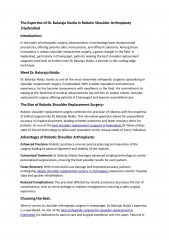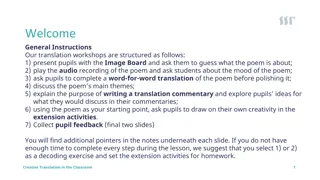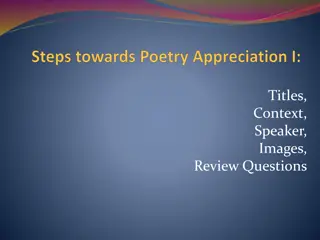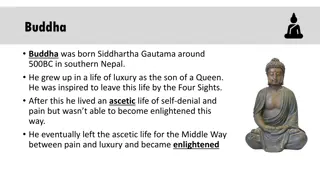Transience Poem by Sarojini Naidu - Reflections on Life's Impermanence
In "Transience," Sarojini Naidu conveys a message of optimism amidst life's sorrows. Through vivid imagery, she emphasizes the impermanence of pain and the certainty of new joys and hopes. The poem reflects on the cyclical nature of life, where sorrow gives way to renewal and growth, drawing parallels to the beauty and resilience of nature. Naidu's lyrical verses inspire a shift in perspective towards embracing change and finding solace in the fleeting nature of human experiences.
Download Presentation

Please find below an Image/Link to download the presentation.
The content on the website is provided AS IS for your information and personal use only. It may not be sold, licensed, or shared on other websites without obtaining consent from the author. Download presentation by click this link. If you encounter any issues during the download, it is possible that the publisher has removed the file from their server.
E N D
Presentation Transcript
TRANSIENCE (POEM) BY SAROJINI NAIDU A.J.SALEEMA KATHOON ASSISSTANT PROFESSOR OF ENGLISH HAJEE KARUTHA ROWTHER HOWDOA COLLEGE, UTHAMAPALAYAM
About the poet Sarojini Naidu was a famous Indian writer. She was also a political activist, feminist and first Indian woman to be the president of the Indian National Congress . She was appointed as an Indian State Governor. Naidu was an ardent follower of Mahatma Gandhi.
Her Literary Works Her first volume of poetry, The Golden Threshold (1905), was followed by The Bird of Time (1912). She published her collection of poems under the titles The Sceptred Flute (1928) and The Feather of the Dawn (1961). For her work in the field of poetry writing, Sarojini was given the title of Nightingale of India .
Transience Nay, do not grieve tho' life be full of sadness, Dawn will not veil her splendour for your grief, Nor spring deny their bright, appointed beauty To lotus blossom and ashoka leaf. Nay, do not pine, tho' life be dark with trouble, Time will not pause or tarry on his way; To-day that seems so long, so strange, so bitter, Will soon be some forgotten yesterday.
Poem continues..... Nay, do not weep; new hopes, new dreams, new faces, The unspent joy of all the unborn years, Will prove your heart a traitor to its sorrow, And make your eyes unfaithful to their tears.
Outline of the poem Transience means short-lived. The poem is a short lyric of twelve lines divided into three stanzas. Here the poet strikes an optimistic note in the poem. Life is no doubt, full of sadness. But we should not grieve at this. According to Hindu philosophy, sadness is short lived and joy is permanent.
Continues....... In the cosmic scheme of things, there is constant renewal and growth, and there is also constant joy. Because the beauty and joy of nature are an expression of the divine joy in the work of creation. The work of creation is ever continuing, so nature is always beautiful. Man should learn this philosophy from nature.
Continues..... In spite of his grief, man may be sad, but the dawn continues to be beautiful. Nature continues to rejuvenates..... Spring returns at the appointed time... Lotus blossoms.... Ashoka leaves and flowers are beautiful.... ....once again...
Continues...... The cosmic principle is the principle of beauty and joy. This principle governs nature as well as human life. Man should draw consolation from this fact. Man must not grieve and feel sad , even life is full of sorrow and troubles. He should understands the fact that time does not stop its operation.
Continues... Time destroys, but it also creates and rejuvenates. Instead of worrying , man should be creative and revitalising power of Time. With the passing of time, new joys and new hopes will come.
conclusion In short , the message of the poetess is one of optimism and it is rooted in the Hindu view of the cosmic law. With the passing of Time, greater and greater perfection is achieved till the finite merges with the Infinite.

























